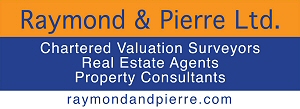Taxing thoughts on property – Part 3
Taxation of rental income
Published
Thursday 8th April, 2004

A view of the proposed Port-of-Spain waterfront
development. Photo: Brian Ng Fatt
We intended to discuss the stamp duty in this column but there have
been some delays in getting the relevant information from the BIR.
This week we will discuss the taxation of property income and the
effects of this regime. When we think of the number of people who rent
their homes and the speed with which good properties are sold, it is
also clear that there is a growing interest in acquiring property for
rental as an investment.
Once again, due to the lack of any official statistics, we have no
clear idea of how many people here rent their homes and what rents are
being paid.
In fact, with the absence of these basic items of information, it is
difficult to imagine how the BIR can assess the accuracy of the returns
filed by property owners.
Of course, it is difficult to be certain, but it seems that a number
of our most successful property investors do not declare income received
from rent.
The rental income seems to be regarded as a “lagniappe” and it is the
rare investor who will pay tax on this.
Income is one of the main sources of wealth targeted for taxation
since it is one enjoyed by almost everyone.
It is therefore natural that income taxes will receive the intense
attention of tax specialists who are paid to find ways of minimising
their clients’ tax liability.
There are a number of “tax-efficient” means of arranging the affairs
of a wealthy person; indeed, it is settled law that the taxpayer has the
right to seek to reduce their exposure to tax.
However, is it right to simply fail to declare a source of income in
order to cheat the taxman? Rental income in this country is a healthy
stream of money and a significant number of the people making the false
claims are well-off.
When one considers the consistently high levels of claims placed on
the nation’s resources by its ambitious citizens and the level of tax
evasion, it is clear the freeness and something for nothing mentality we
so love to complain about is very widespread. Everything is really
everything here!
Some key points which arise on the issue of income tax on property
are:
Landlord v Tenant — There is a fundamental difference in the
viewpoint of landlords and tenants and it is extremely unlikely that
tenants would willingly collude with landlords to conceal income.
We can therefore expect co-operation from tenants if an effort was
made to gather proper records of rents.
Collections v Tax rates — It is popular fun here to admire the
“smartman” and it is a deeply-bred part of our nature to be a little
suspicious of the intentions of the State. It is little wonder that when
one hears of someone successful who is paying too little tax, the common
reaction is one of quiet admiration.
The point we should consider is that, despite the amusing anecdotes,
the proper enforcement of our tax laws would offer the possibility of a
life with lower tax rates.
If the collections net were widened to include more of the missing
income, it would be possible to ease the tax burden for everyone.
The role of the BIR — Just last week in this very section of the
business press we read impressive plans to merge the BIR and the Customs
and Excise Division and their new office complex to be erected downtown
by UDECOTT.
These are impressive aspirations, which would tend to align us with
some emerging trends in public administration and of course we are
pleased to see new life being breathed into our capital city.
I think we are entitled to ask whether this is yet another
“mega-project” with little in the way of real progress.
Can we really expect to see a re-invigorated Revenue Service with
proper linking of data and improved levels of collections?
Residential property — There are a growing number of
expatriate professionals living in our country who have their housing
paid for by their firm and this provides a good income for a particular
group of local investors.
These rents would count as deductible expenses and ought to be found
in the tax returns of the tenant firms.
Non-residential property — The State rents a significant
number of office buildings and there is therefore no need to search for
the evidence in these cases; do the landlords declare the correct income
in their tax returns?
In the case of private landlords, a bit more homework is needed since
the tenants will have filed their own tax returns with the rent as a
deductible expense.
Next, we will be examining the stamp duty.
|

